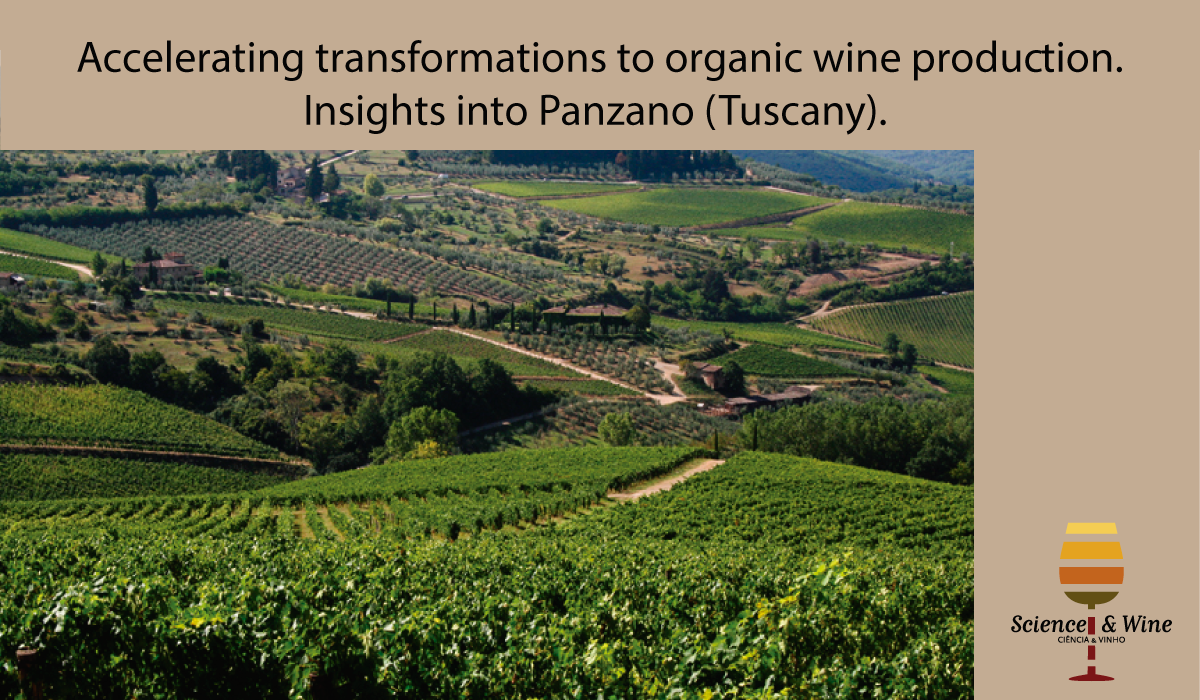By Cristina Chaminade and Filippo Randelli
This blog post is based on a recently published article in the journal “Sustainability” on the role of territorially embedded innovation ecosystems accelerating sustainability transformations: a case study of the transformation to organic wine production in Tuscany (Italy).
In that paper, we investigate the rapid transformation of Panzano from traditional wine production to organically produced wine. For doing so, we used a combination of document analysis, participant observation, and face to face interviews in Panzano in 2019. For those interested in learning more, the full article can be accessed for free using this link.
In this post, we try to answer four questions: 1) Why fast transformations are needed? 2) What is so special about Panzano? 3) How do we explain the fast transformation of Panzano and 4) What can we learn from the Panzano case that can be applied to other wine regions around the world.
1. Why are fast transformations needed?
According to the 2019 UN report on the state of world biodiversity and ecosystem services, biodiversity losses are jaw-dropping in economic terms. Pollinator loss has put up to $577bn (£440bn) of crop output at risk, while land degradation has reduced the productivity of 23% of global land. The need for accelerated system transformations has come to the forefront of political and academic debates.
However, in the real world, long-term incremental system changes are the norm. So, our quest was rather simple, can we find wine regions around the world in which the transformation to organic wine production has been much faster than neighboring regions?
2. What is so special about Panzano?
Panzano is located in the municipality of Greve in Chianti within the Tuscany region (Italy), between the two cities of Firenze and Siena. The municipality of Greve in Chianti is included in the Chianti Classico region, which covers 71,800 hectares (177,500 acres) of the territory, of which 10,000 hectares are devoted to the wine production.
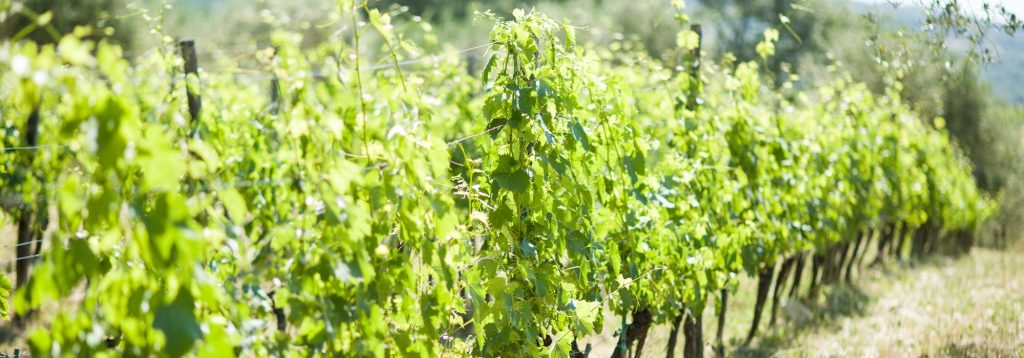
3. Explaining the fast transformation to organic wine production of Panzano
Strong social capital and shared vision
In 2000 when the Italian Ministry for Agriculture and Forestry forced all wine producers to use chemicals to fight an insect vector of the Golden Flavescence (“Scaphoideus titanus”) a “disease that causes enormous damages to the vineyards. The Ministry made a regular spray of pesticide on all the vineyards, attacked or not, and uprooting of all the infected plants.
In response, the Winemakers Association of Panzano in Chianti reacted as a group and asked for the support of a local, and together, they decided to propose a monitor program to understand the real danger of the pest in the area. The region reacted positively and changed the decree from the obligation to spry to the obligation to monitor and control. The monitoring exercise showed that there was no presence of the insect in the region, and the use of pesticides was avoided. The wine producers understood very clearly that as an association, they had a strong influence and very tangible gains.
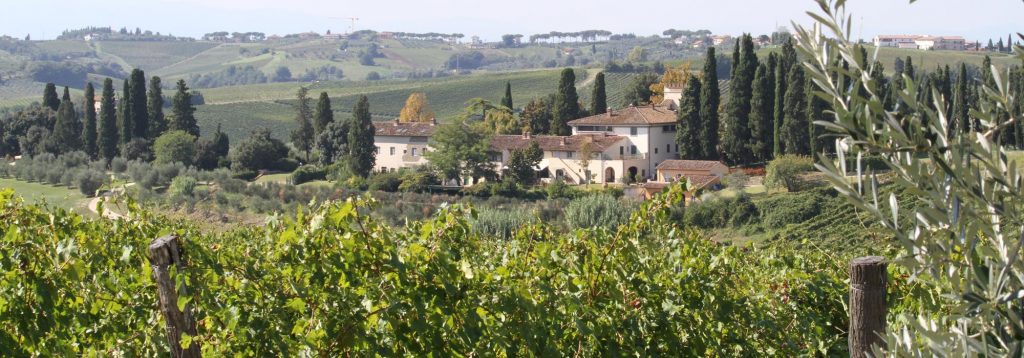
Knowledge sharing, trust, and structural preconditions
In the case of Panzano, sharing knowledge about the transition to organic agriculture was crucial for the speed of the transformation. The monitoring system based on the use of traps to identify the presence of insects was offered for free for the Panzano wineries. The success of the monitoring system strengthened the links among producers. It also allowed local producers to put the trust in the local agronomist, which is one of the pioneers of organic wines in Italy and on his approach to grape growing.
A handful of wine producers in the area decided to create an “Experimental station for sustainable production” (SPEVIS) so that the local agronomist could experiment with different procedures so that the conventional farmers could find it easy and convenient to shift to organic wine production A unique characteristic of SPEVIS was that, although it was funded by only a handful of wine producers in the area, it provided for free advice and support to any local producer interested in shifting to organic wine production practices.
4. Lessons learned
In the case of Panzano, the role of a local leader and intermediary – SPEVIS- was crucial. A unique characteristic of SPEVIS was to provide for free advice and support to any local producer interested in shifting to organic wine production practices. The success of SPEVIS may suggest policymakers to support the access to knowledge through the action of local meta-actors that can cooperate with the local firms.
Conventional farmers consider the first step towards organic as the most “expensive” du” to the need to search for new skills, materials, and suppliers; in this perspective, the free advice that SPEVIS provided to the producers was key in the accelerated transformation. But SPEVIS would not have been possible without the shared vision that a handful of producers had at the start and the success of the joint response to the “Scaphoideus titanus” crisis.
So, the shared vision and strong sense of place of the pioneer organic wine producers and the structural preconditions enabling rapid knowledge transfer explain the fast transformation to organic production.
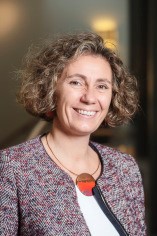
Cristina Chaminade 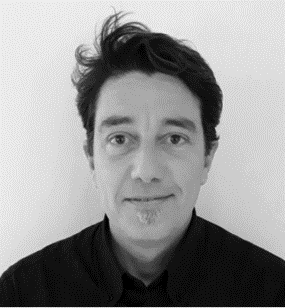
Filippo Randelli 
Cristina Chaminade is a Full professor in Innovation Studies at Lund University School of Economics and Management and CIRCLE (the Center for Innovation, Research, and Competences in the Learning Economy) at Lund University, Sweden. She is also the Director of the Master’s program in Innovation and Global Sustainable Development. She holds a Bachelor’s and a Ph.D. in Economics. In her research, she is particularly interested in the process of transformation from unsustainable to sustainable systems. Her leading questions are what might enable the direction and geographical scale of the transformation and how transformations can be accelerated. She regularly works as an international expert for international organizations such as the European Commission, UNCTAD, OECD, and UN-ECLAC. She has extensively published in international journals, refereed books, and handbooks in the fields of innovation, international business, development studies, and sustainability.
Filippo Randelli is an Associate Professor in Economic Geography at the Department of Economics and Management of the University of Florence. He holds a Ph.D. in Economic Geography. Since 2016 he is Director of the Study abroad program “Sustainable Agriculture, Food and Justice in Italy” for the HECUA (Higher Educational Consortium of Urban Affairs) consortium of American Universities. He carried out research on sustainable agriculture, tourism development, and environmental economics. His main interest is to study the balance between economic development and environmental sustainability. He is on the board of the Società di Studi Geographic. He was invited professor at Utrecht University (2010), Cambridge University (2011), Swiss Federal Institute of Aquatic Science and Technology (EAWAG) in 2012, and University of Aalborg (2013). He has many publications in international journals, refereed books, and handbooks

